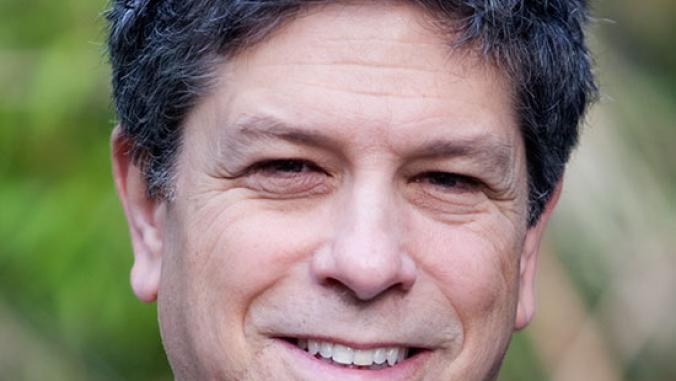Using the Arts to Inspire a Sustainable Generation
<p>The co-founder of Artists for Humanity talks about training in the arts, and all it entails in terms of community, responsibility and hard work, helps to set them up as future leaders of a more sustainable world.</p>

Nature of Business radio, created and hosted by Chrissy Coughlin, is a weekly show on business and environment.
On my radio show, I like to take time to talk to my guests about who they are in addition to what they do. I ask questions about how they first became interested in business, what pivotal moment took place that caused their "environmental shift," which person they can credit for influencing them.
Their answers share some themes, for sure, but also run the gamut. What certainly is consistent is how my guests talk about the younger generations and voice their concerns about the kind of world we are setting up for them. And for the most part, they are optimistic.
 Susan Rodgerson, Co-Founder of Boston based Artists for Humanity (AFH), is one of those optimists. And she should be. Roughly two decades ago, she started AFH with a few highly motivated students providing these kids a voice, teaching them responsibility and setting them up as future leaders. From its humble beginnings, AFH now boasts 130 students with a waitlist of 100.
Susan Rodgerson, Co-Founder of Boston based Artists for Humanity (AFH), is one of those optimists. And she should be. Roughly two decades ago, she started AFH with a few highly motivated students providing these kids a voice, teaching them responsibility and setting them up as future leaders. From its humble beginnings, AFH now boasts 130 students with a waitlist of 100.
Housed in a building called the Epicenter (pictured below), a LEED Platinum certified building (the first of its kind in Boston), AFH students hone their art, build self-confidence and awareness, are exposed to the basic tenets of sustainability, and learn real life skills like team building and collaboration.
Not only are they equipped with the necessary skills to be successful in whatever profession they so choose but are set up to do so with compassion and a devotion to something much larger than themselves.
Susan has been wise to demand the best from these students and does so in part by employing them. Yes, they get paid for their projects plus commission. This is no ordinary after school program to be sure. Their art, throughout the Boston community (and beyond) is viewed as highly important and sophisticated.
By treating their art as a commodity, students, with the help of mentors, are in business and the results have been astounding. They go onto become architects, community organizers, painters, environmental educators ... you name it.
Susan captures it nicely. In her words:
We use the arts as a vehicle. We're really teaching people life skills. We are teaching people to be part of a community, how to be a good worker, how to be focused and attentive to what they are doing ... how to know what they like to do and how to focus on what they like to do because they are going to be best at those things ... It's remarkable how talented these people are and they didn't realize they have the talent. This work allows them to be clever and creative in whatever they choose to do.
 The Epicenter has certainly helped, too, by connecting students to their surrounding environment. The students know their building is very special (as do the adults) and are extremely proud of it. They like to boast that there is no AC, a ton of natural light, recycled materials galore such as (very cool) Crown Victoria police car windshields salvaged from the junk yard and much more.
The Epicenter has certainly helped, too, by connecting students to their surrounding environment. The students know their building is very special (as do the adults) and are extremely proud of it. They like to boast that there is no AC, a ton of natural light, recycled materials galore such as (very cool) Crown Victoria police car windshields salvaged from the junk yard and much more.
In essence, the building has introduced students to sustainability and they are bringing those tenets back to their communities. In April the Epicenter will once again serve as the locale for AFH's 7th annual Greatest Party on Earth to commemorate Earth Day. Students are already in full swing churning out their art to sell at the event -- art with an environmental theme.
And the future looks bright for AFH. In the next five years they will be expanding and hope to replicate what they are doing in different cities all over the US. It is already happening incrementally. In my opinion, it can't expand fast enough. Nurturing students to be the future leaders full of business savvy, creativity, and compassion. Pretty fantastic.
I will end with Susan's words. They are words that many of us imbedded in the sustainability movement can certainly understand and are part of what possibly drove many of us to this field first place.
She says,
One of the critical results of working at AFH is that you understand the value of being part of a community, you enjoy helping one another, who enjoy helping people. I think that's huge addition to the future of our planet and our society. When people believe it creates the energy to make it happen.
(Renewable energy, of course.)
George Papoulias edited this podcast.





